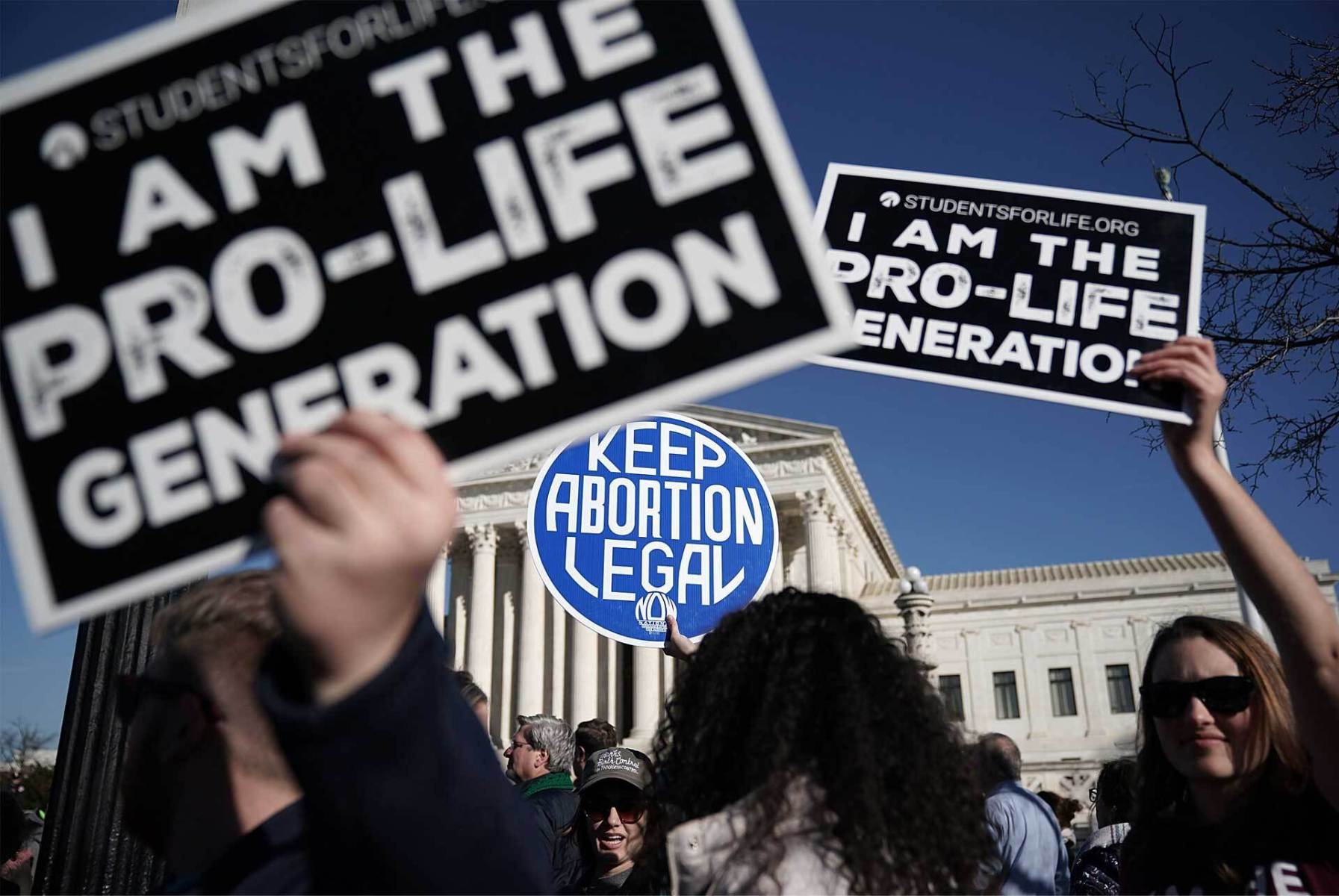We’re the only newsroom dedicated to writing about gender, politics and policy. Subscribe to our newsletter today.
Abortion rights faced a mixed election night: Voters in Colorado rejected a state ballot initiative to ban the procedure after 22 weeks of pregnancy, according to Associated Press projections. But Louisiana voters approved a state constitutional amendment to specify that abortion is not a protected right, per both the AP and Decision Desk HQ.
In Colorado, about 59.3 percent of people voted against Proposition 115, with 82 percent of the vote counted. Louisiana voters passed Amendment 1 with about 64.6 percent of people voting in favor, with 92 percent of votes counted.
The divergent results foreshadow an emerging reality for abortion access. Following the confirmation of Justice Amy Coney Barrett, the Supreme Court is expected to chip away at abortion access protections — Barrett has suggested Roe v. Wade, which enshrined the federal right to an abortion, was wrongly decided, likely cementing enough votes to reverse the landmark decision.
It’s yet unclear who will win the presidential election. But while Joe Biden campaigned promising to protect abortion rights, President Donald Trump has made no secret of his opposition.
If the court strikes down Roe v. Wade, or scales back its protections, states will take a deciding role in what abortion rights look like across the country. That means stark divisions in access playing out across the country. There will be some states like Colorado, with stronger protections in place, and others like Louisiana, with heightened restrictions.
“The states in the South and the Midwest will continue to adopt abortion restrictions and work to make it even harder to access services, while states that are on the West Coast and in the Northeast will look to not only protect abortion legally but ensure that access is available and affordable,” Elizabeth Nash, who tracks state reproductive policies for the Guttmacher Institute, previously told The 19th.
In Colorado, Prop 115’s failure means the state will continue allowing abortions at any point in pregnancy — leaving it one of only seven states to do so. Eighteen states currently ban abortions at 20 to 22 weeks of pregnancy, defined by the date of the person’s last menstrual period.
Had the Colorado ban passed, people seeking abortions at 22 weeks or later would have had to travel at least 300 miles each way to seek care, the Guttmacher Institute estimated. The vast majority of abortions occur earlier in pregnancy, but what little research exists suggests that those who do get one after 22 weeks are typically lower-income, younger and less likely to have regular health care access.
“For a pregnant person that has two kids, maybe is the sole provider in the family and lives far away — a lot of times it could take months for this person to be able to have an abortion,” Karla Gonzalez Garcia, the policy director for the Colorado Organization for Latina Opportunity and
Reproductive Rights, previously told The 19th. “That’s why a lot of times these people can’t access abortion” earlier in pregnancy.
Meanwhile, Louisiana’s amendment follows similar efforts in West Virginia, Alabama and Tennessee. The amendments are meant to lay groundwork so that, if federal abortion protections are overturned, state lawmakers have an easier time passing new restrictions.
“There’s this anticipation that abortion rights are going to be dismantled at the federal level and that means state constitutions become more important,” Nash previously told The 19th. “This would set the stage for an abortion ban.”
Especially on the heels of Amendment 1’s success, other states are likely to see similar initiatives. Katie Glenn, government affairs counsel for Americans United for Life, suggested Kansas and Alaska as states where such amendments might gain traction.
Currently, 10 states guarantee the right to an abortion, based on rulings from their individual state supreme courts.
Meanwhile, Nash said, the new Supreme Court makeup means new states are likely to pursue other kinds of restrictions, both in anticipation of and following any new rulings on abortion law. Those could include bans earlier on in pregnancy, requiring longer waiting periods before an abortion is performed and more restrictions on the clinics that provide the service.






